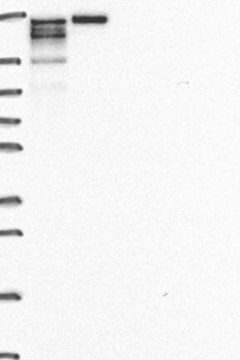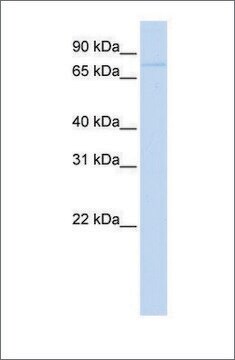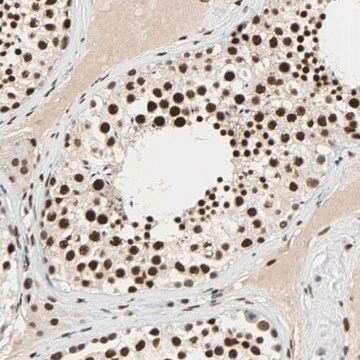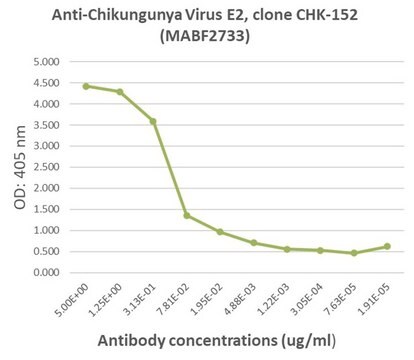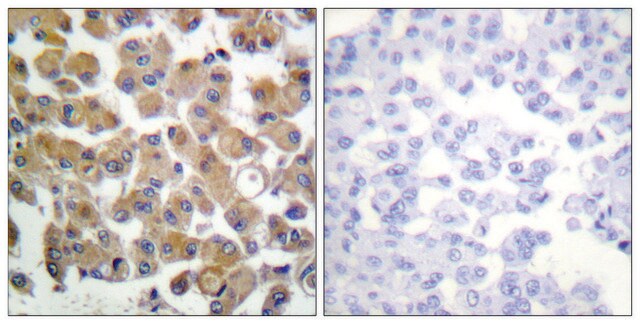Kluczowe dokumenty
SAB4200124
Anti-Nexilin antibody,Mouse monoclonal
clone NX-38, purified from hybridoma cell culture
Synonim(y):
Anti-NEXN, Anti-Nelin
About This Item
Polecane produkty
pochodzenie biologiczne
mouse
białko sprzężone
unconjugated
forma przeciwciała
purified from hybridoma cell culture
rodzaj przeciwciała
primary antibodies
klon
NX-38, monoclonal
Postać
buffered aqueous solution
masa cząsteczkowa
antigen 80 kDa
reaktywność gatunkowa
mouse, human, rat
opakowanie
antibody small pack of 25 μL
stężenie
~1 mg/mL
metody
immunocytochemistry: suitable
western blot: 1-2 μg/mL using using rat brain S1 fraction extracts
izotyp
IgG2a
numer dostępu UniProt
Warunki transportu
dry ice
temp. przechowywania
−20°C
docelowa modyfikacja potranslacyjna
unmodified
informacje o genach
human ... NEXN(91624)
mouse ... Nexn(68810)
rat ... Nexn(246172)
Opis ogólny
Specyficzność
Zastosowanie
Działania biochem./fizjol.
Postać fizyczna
Przechowywanie i stabilność
Oświadczenie o zrzeczeniu się odpowiedzialności
Nie możesz znaleźć właściwego produktu?
Wypróbuj nasz Narzędzie selektora produktów.
Kod klasy składowania
10 - Combustible liquids
Temperatura zapłonu (°F)
Not applicable
Temperatura zapłonu (°C)
Not applicable
Certyfikaty analizy (CoA)
Poszukaj Certyfikaty analizy (CoA), wpisując numer partii/serii produktów. Numery serii i partii można znaleźć na etykiecie produktu po słowach „seria” lub „partia”.
Masz już ten produkt?
Dokumenty związane z niedawno zakupionymi produktami zostały zamieszczone w Bibliotece dokumentów.
Nasz zespół naukowców ma doświadczenie we wszystkich obszarach badań, w tym w naukach przyrodniczych, materiałoznawstwie, syntezie chemicznej, chromatografii, analityce i wielu innych dziedzinach.
Skontaktuj się z zespołem ds. pomocy technicznej


